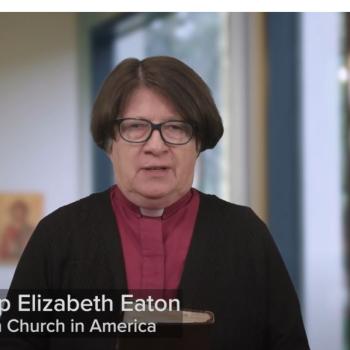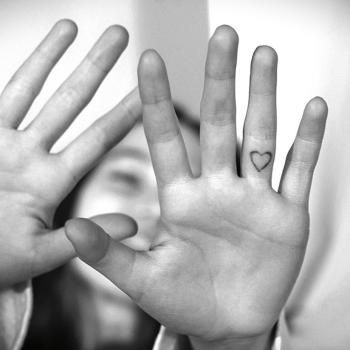This is a tough week to be preaching about the Holy Spirit and Pentecost Sunday.
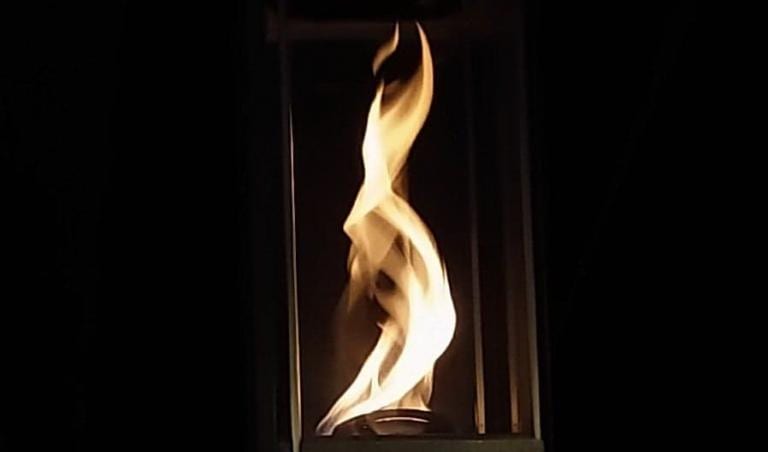
It’s difficult to preach about holy breath when images of choking and suffocation come through our screens, gasping like George Floyd.
He begged for life while a police officer crushed his airway under his knee.
And when we think about the breath of Breonna Taylor ended by the guns of police right in her own home.
Or Ahmaud Arbery hunted down and shot like an animal by white men.
And when we see the effigy of our own Governor Andy Beshear hung from a tree, reminiscent of lynchings that choked and killed the lives of thousands of black men and women at the hands of white supremacists.
It’s hard to talk about tongues of holy fire when cities around our nation are burning with rage stoked by 400 years of brutality against African Americans.
It came in the form of slavery, Jim Crowe, and segregation. It continues to ravage bodies, families, and entire communities. Because it now takes the form of economic inequality, police brutality, and educational and health care systems that underserve communities of color.
And in the midst of it all, we are still ravaged by a pandemic that seeks to attack our lungs and steal our breath.
How sadly ironic that on the day we remember the breath of God blowing through that upper room, we must mask ourselves to protect each other from our breath.
Today is supposed to be a time for celebration marking the so-called birthday of the Christian church. But it’s nearly impossible to feel celebratory when Christians are divided and divisive about what it means to worship in a time of pandemic. We are learning that we are each responsible for our own breath.
Are we going to be responsible for our breath or not? And how will we use this precious breath that we have been given?
These are questions the apostles might have been asking themselves as they emerged from their upper room, swept into that Jerusalem street with a gift for language they never had before.
The story is rich with symbolism. A wind filling the room where the disciples are gathered, rushing around and through them. In Hebrew, the word is ruah. In Greek, it’s pneuma. It’s the very breath of God filling the lungs of the apostles with Jesus’s own breath, giving them power they never knew was possible. Tongues of holy fire danced above them flickering like the flames from Moses’s bush that gave light but did not burn.
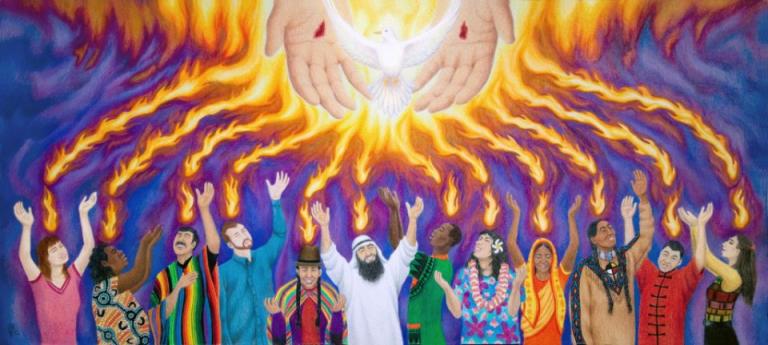
A crowd began to gather there in Jerusalem to see what was going on. People had come from all nations of the Mediterranean world for the Jewish celebration of Shavuot – God’s gift of the Ten Commandments given to Moses. You can imagine the scene. The street filled with all kinds of people: light skin, dark skin, bronze skin, pale skin. Exotic clothing. All different styles of hair. And such a mish-mash of languages and dialects.
I think about that day of Shavuot/Pentecost when I look at the scenes of people gathered in protest around the country over this past week.
Of course, the reasons for these gatherings are not to celebrate the gift of God, but are, in fact, to protest the deaths of God’s precious children. People are coming to these protests from all walks of life. Streets are filled with skin colors of all kinds speaking out against the terror being inflicted upon the descendants of slaves. It’s not just black folks. It’s white folks as well. It’s all kinds of folks.
People are outraged about police murders without consequence. Because they are realizing that if it can be done to unarmed black bodies, it can just as easily be done to white bodies as well. People are waking up. They are fed up with brutality and oppression. They are no longer content with poverty. And they can no longer stand leadership that either ignores them, or worse, stokes the fires of hatred and evil.
So I wonder how we will use our voice?
How will we — Christians in a primarily white congregation, in a primarily white denomination (ELCA) — use our voice when black and brown bodies are beaten, shot, or smothered to death by certain police officers? When the fires of systemic racism burn through a country that built its economic foundation on slave labor?
Are we going to be responsible for our breath or not? How will we use this precious breath that we have been given?
I cannot speak for anyone else, but here is how I plan to use my breath.
I will use my breath – the gift of life that God has given me – to speak out against injustice. And to teach my own children about what it means to confront the sins of racism.
I will use my breath – the Holy Spirit that moves through me – to speak out alongside of those who do not enjoy the same privileges as me by virtue of their skin color, or sexuality, or religion, or age, or body type, or country of origin.
I will use my breath – the breath of Jesus that gave the disciples peace and forgiveness – to ask forgiveness. To ask forgiveness from my black and brown siblings who wonder every day if this will be the day that someone they love, or even they themselves, will lose their life because of the skin into which they were born. Even if it’s not my finger on the trigger or my knee on the neck, the fact is that I benefit from a system that privileges my skin color over and above anything darker.
Holding space
John Wood, Jr., is a National Ambassador for a group called “Braver Angels,” a citizens’ organization working to depolarize America. In an email to the members of Braver Angels, he wrote:
The work of maintaining a free society, a country where we can speak our truths without reprisal, where we can come and go freely without fear of violence, destruction, persecution by police or chaos from the mob, crashes headlong into the reality of the cruel presence of injustice in American life and the justifiable anger that boils over into unjustifiable destruction. When passions run high in America, it can be difficult to hold the ground for understanding across divides and . . . (move) institutions towards justice and reform.
But somebody must hold that space. And some of us will.
Church, we are ones who can, who must, hold that space.
We can, we must, be a Pentecost church that models itself on the first Pentecost church – a group of people who followed a crucified and risen Jesus. Like them, we must be a group of people who confront injustice and political differences with ethical and moral resolve.
We must be a Pentecost Church!
We must be a Pentecost church that reaches out to our neighbors with a commitment to righteous anger about unrighteous racism. And a commitment to hold ourselves accountable for confronting our own racism, as well as systems from which we benefit as white folks at a tremendous cost to our siblings of color.
A Pentecost church is a church that does not tolerate injustice and also does not tolerate violence.
A Pentecost Church is one that stands with their siblings and speaks with one voice for peace. Even when those voices are in different languages!
And a Pentecost Church strives to listen and understand what it’s like for their neighbors who live with prejudice, unfair treatment, false accusations, and disproportionate violence from police because of their skin color, or their religion, or their accent.
You see, the miracle of Pentecost was not just in the apostles speaking. It was in the hearing of those who listened.
What are we hearing? Who are we willing to listen to?
Will white churches like ours find their Pentecost courage?
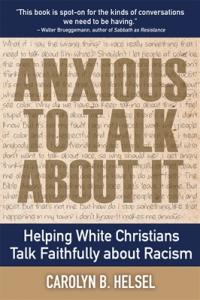
Would we be willing to engage in a book study to help us talk about racism and white privilege? [I highly recommend Carolyn Helsel’s Anxious To Talk About It: Helping White Christians Talk Faithfully About Racism. Also see my piece, One White Woman’s ‘Woke’ List.]
Would we consider watching a series of films about the stories and experiences of people of color and engage in a discussion about it? How about a deliberative dialogue about Safety and Justice? Or are we ready to join a movement such as the Poor People’s Campaign to learn how we can become allies instead of adversaries in dismantling the racist structures of our society?
Remember that Jesus described the Holy Spirit as the Advocate – the one who acts for justice and righteousness.
This is the role of the Holy Spirit bringing people together across cultures and religions and languages. Just like on the day of Pentecost when 3000 people came together by the work of the Holy Spirit.
A revolution of love began that day. And we need that revolution of love now more than ever.
I don’t mean a feel-good, sappy kind of love. It’s the kind of love that sacrifices white ego for the sake of black lives. It’s the kind of love that steps outside of fear for the sake of courage. And it’s the kind of love that trusts God’s power to transcend all barriers of race with a mighty wind and a holy, purifying fire.
The gift of speaking the gospel of Jesus Christ did not end on that day of Pentecost. You can speak in your own tongue about God’s deeds of power.
This is the work of the Holy Spirit, my friends. In your very body, your voice, your breath. God’s power is gracing our church with energy and courage for a ministry of justice, peace, repentance, reconciliation, and restoration. The Holy Spirit’s power is helping us build loving relationships with our neighbors. And to stand with those in need against the ones who would harm them.
I pray that the Holy Spirit will touch you and the entire church this day. I pray that the Spirit will move through our breath and heart and mind and body to feel that power of God in Jesus Christ. Amen!
Read also:
Hi, I’m Leah. I’m a Recovering Racist.
What Toni Morrison Taught Me About Racism in Her Book ‘Beloved’
Race, Faith, and the Climate Movement: Interview with Rev. Lennox Yearwood, Jr.
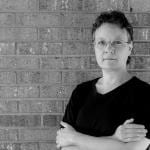
Leah D. Schade is the Assistant Professor of Preaching and Worship at Lexington Theological Seminary in Kentucky and ordained in the ELCA. Dr. Schade does not speak for LTS or the ELCA; her opinions are her own. She is the author of Preaching in the Purple Zone: Ministry in the Red-Blue Divide (Rowman & Littlefield, 2019) and Creation-Crisis Preaching: Ecology, Theology, and the Pulpit (Chalice Press, 2015). She is also the co-editor of Rooted and Rising: Voices of Courage in a Time of Climate Crisis (Rowman & Littlefield, 2019).
Twitter: @LeahSchade
Facebook: https://www.facebook.com/LeahDSchade/






